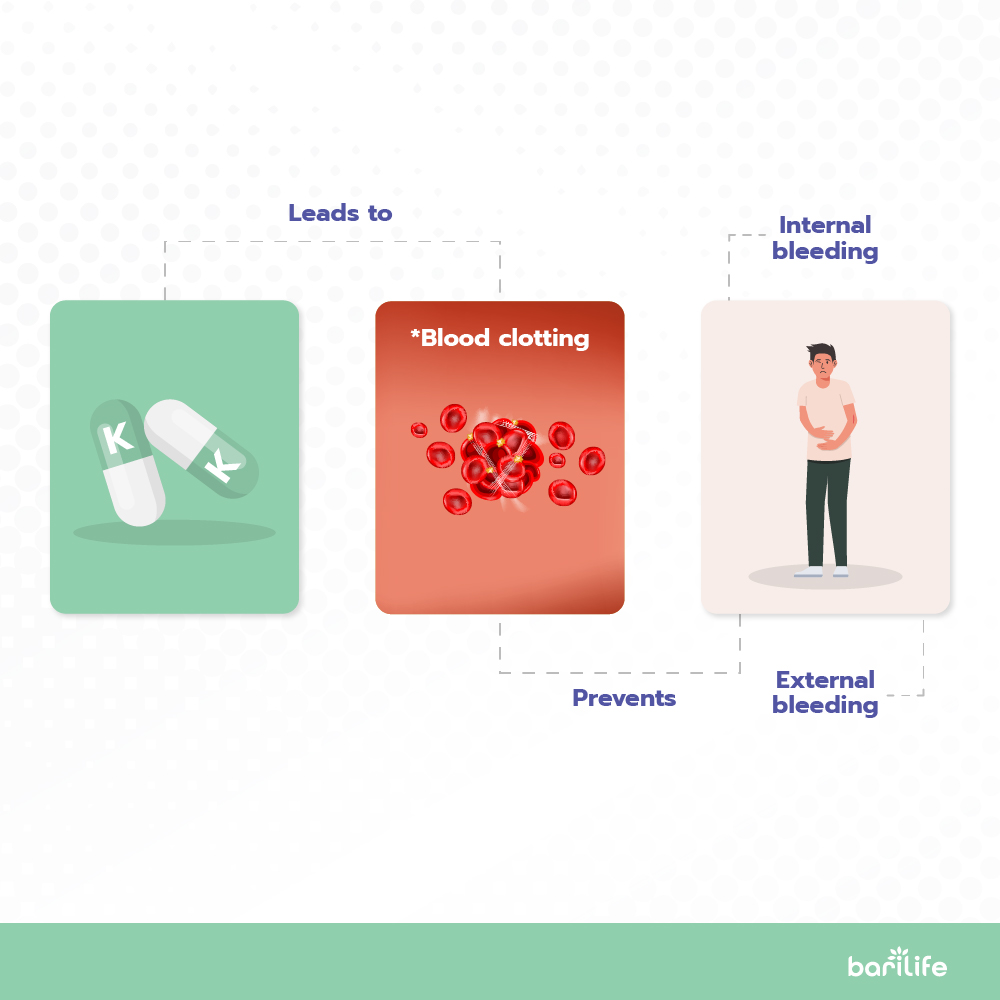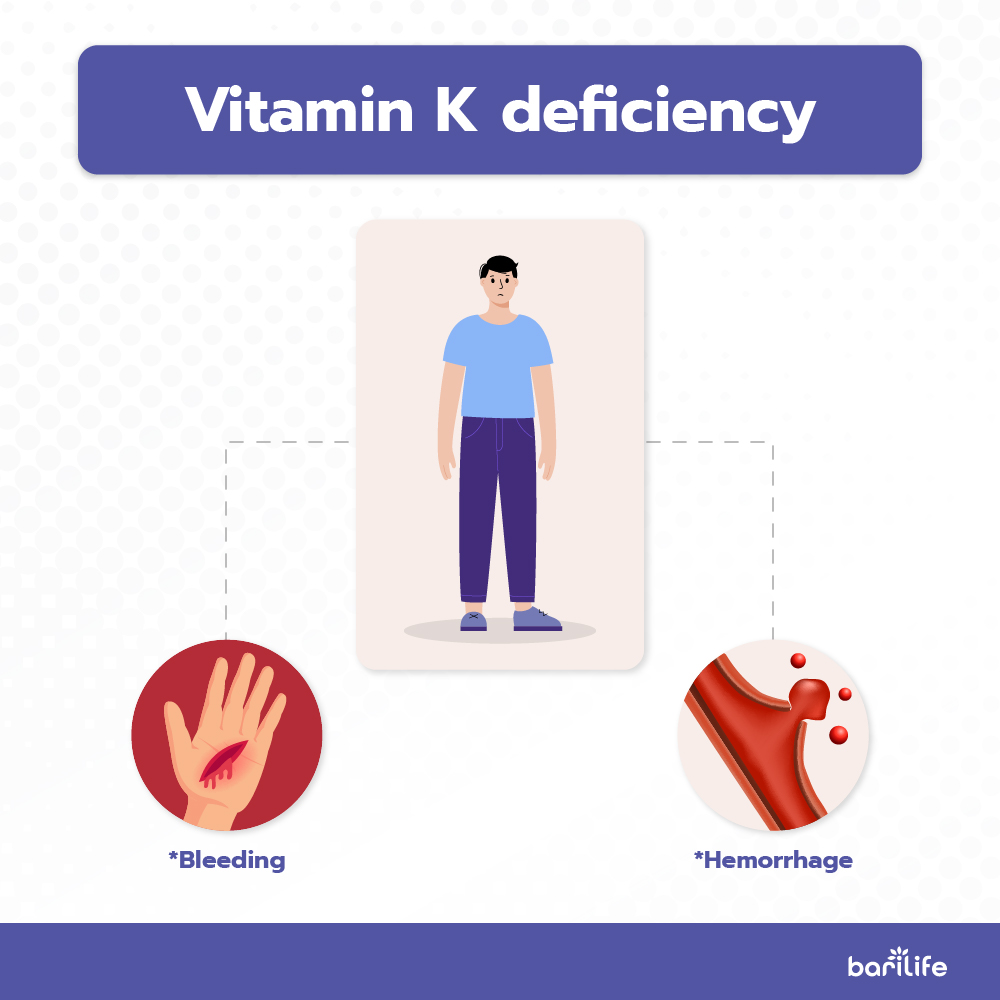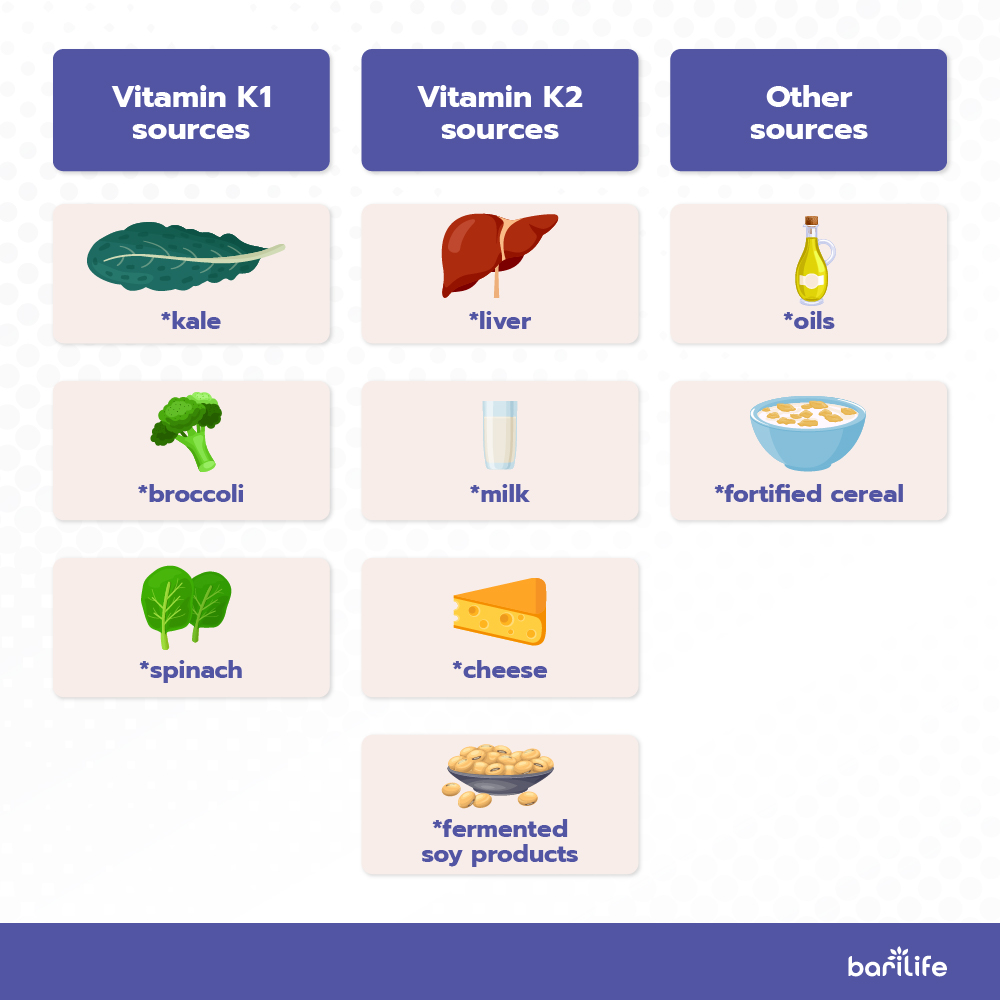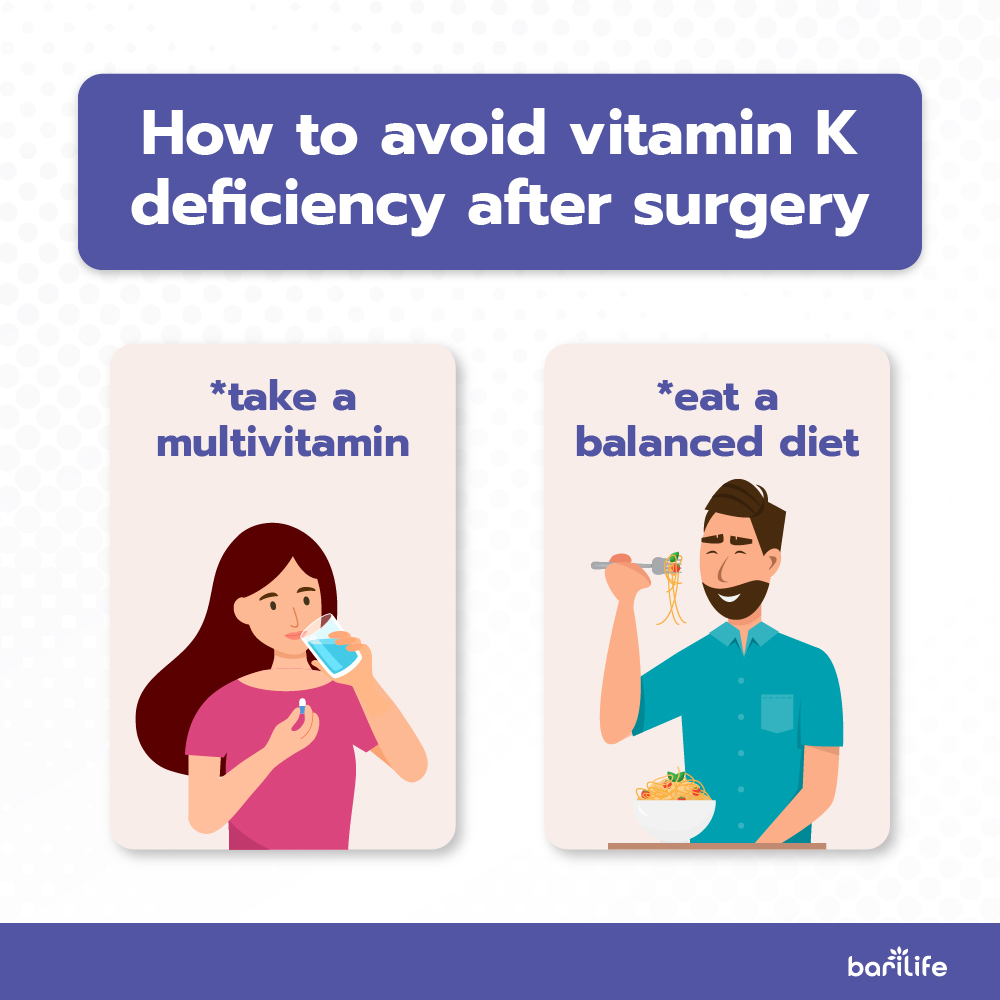Following bariatric surgery, you are often told that you are at risk for vitamin deficiencies, but you may not actually know what that means or how to identify a vitamin deficiency. To discuss every single vitamin in one article might lead to a bit of information overload so in this article we will specifically discuss Vitamin K.
This article will inform you of the importance of vitamin K in the body, how to identify if you are deficient in vitamin K, and key sources of Vitamin K.

What is vitamin K?
Vitamin K is a fat-soluble vitamin that plays a significant role in blood clotting. A Danish scientist, named Henrik Dam, first discovered this vitamin when working with chickens. Dam noticed that chickens fed a fat-free diet developed bleeding diathesis.
When he investigated this issue a bit further, he determined that a deficiency in a previously unknown compound was causing the problem. That unknown compound is now known as Vitamin K.
Dam named vitamin K for Koagulation because it plays a significant role in the clotting of blood.
Your body needs vitamin K to produce proteins that are utilized in the clotting process. If your body does not have enough vitamin K then it will not have a sufficient amount of these proteins and it can result in bleeding. Blood clotting is important to prevent both internal and external bleeding.

The ASMBS guidelines for vitamin K
Following bariatric surgery, you will need to make sure that you are consuming the appropriate amount of Vitamin K. The dose of Vitamin K recommended following bariatric surgery depends on the type of procedure that you chose.
The recommendations are the same for Vitamin K following Laparoscopic adjustable gastric banding, the Roux-en-Y gastric bypass, and the sleeve gastrectomy at 90–120 ug/d. However, the dosage recommended following the Duodenal Switch is higher at 300 mg/d of Vitamin K.
| Procedure | How much Vitamin K |
|---|---|
| LAGB | 90–120 mug/d |
| RYGB | 90–120 mug/d |
| SG | 90–120 mug/d |
| DS | 300 mcg/d |
There are a few categories of people that may need to take an additional dose or monitor the supplementation of Vitamin K more closely. These groups include people with a history of vitamin K deficiency, pregnant women post-bariatric surgery, and individuals that have difficulty absorbing enough vitamin K from standard vitamins.
If you have a history of vitamin K deficiency, be sure to talk to your doctor because you may need higher maintenance doses of Vitamin K following bariatric surgery. Pregnant women should pay special attention to post-surgery supplementation of vitamin K. And if standard forms of Vitamin K supplements are not working for you then you may consider looking into water-miscible forms of fat-soluble vitamins to improve absorption.
Signs, symptoms, and complications that can arise for becoming deficient
According to the ASMBS, Vitamin K deficiencies are uncommon following weight loss surgery. However, you should be screened for a deficiency if you experience symptoms related to vitamin K deficiency.
The primary sign/symptom of a Vitamin K deficiency is bleeding or hemorrhage in severe cases.

Other than bleeding there are not very many indicators of a vitamin K deficiency. However, vitamin K is required for the carboxylation of osteocalcin in bone, vitamin K deficiency could also reduce bone mineralization and contribute to osteoporosis.
A vitamin K deficiency in adults is very rare and is usually limited to people with malabsorption disorders or those taking drugs that interfere with vitamin K metabolism. Bariatric surgery can lead to malabsorption of vitamin K.
However, vitamin K deficiencies are rare among post-bariatric surgery patients. In healthy people consuming a varied diet, achieving a vitamin K intake low enough to alter standard clinical measures of blood coagulation is almost impossible.
Vitamin K in the diet
Sources of vitamin K
There are two forms of Vitamin K primarily found in the diet. Vitamin K1 and Vitamin K2. Good sources of Vitamin K1 include leafy green vegetables such as kale, spinach, and broccoli and good sources of vitamin K2 include liver, milk, cheese, and fermented soy products such as Natto. Other sources of Vitamin K include cheese, oils, and a few foods that are fortified with vitamin K.

In the US the most common sources of vitamin K are spinach; broccoli; iceberg lettuce; and fats and oils, particularly soybean and canola oil. Meal replacement shakes and bars are among the few foods that are fortified with Vitamin K.
A balanced diet high in vitamin K
A diet that incorporates foods with high vitamin K content doesn’t have to be complicated because there are a high number of foods that include vitamin K.
Focus on incorporating:
- A variety of vegetables
- Fruits
- Grains (at least half whole grains)
- Fat-free and low-fat dairy products including milk, yogurt, and cheese; and oils.
- A variety of protein foods such as lean meats; poultry; eggs; seafood; beans, peas, and lentils; nuts and seeds; and soy products
Try to reduce your intake of:
- Foods and drinks with a lot of added sugars
- Saturated fat
- sodium
- Alcoholic beverages
And stay within your daily calorie needs!
Do you need to take Vitamin K supplements following bariatric surgery?
If you have no history or symptoms of a vitamin K deficiency you likely will just need to take a multivitamin containing vitamin K. A balanced diet and a multivitamin should prevent a vitamin K deficiency.

If you are looking for some great bariatric multivitamins, then you have come to the right place because Bari Life vitamins have exactly what you need!




What are your tips and tricks to post-bariatric success?